Resources Library
Find Resources
Featured Resources
All Resources
113 Resources found. Displaying page 1 of 12
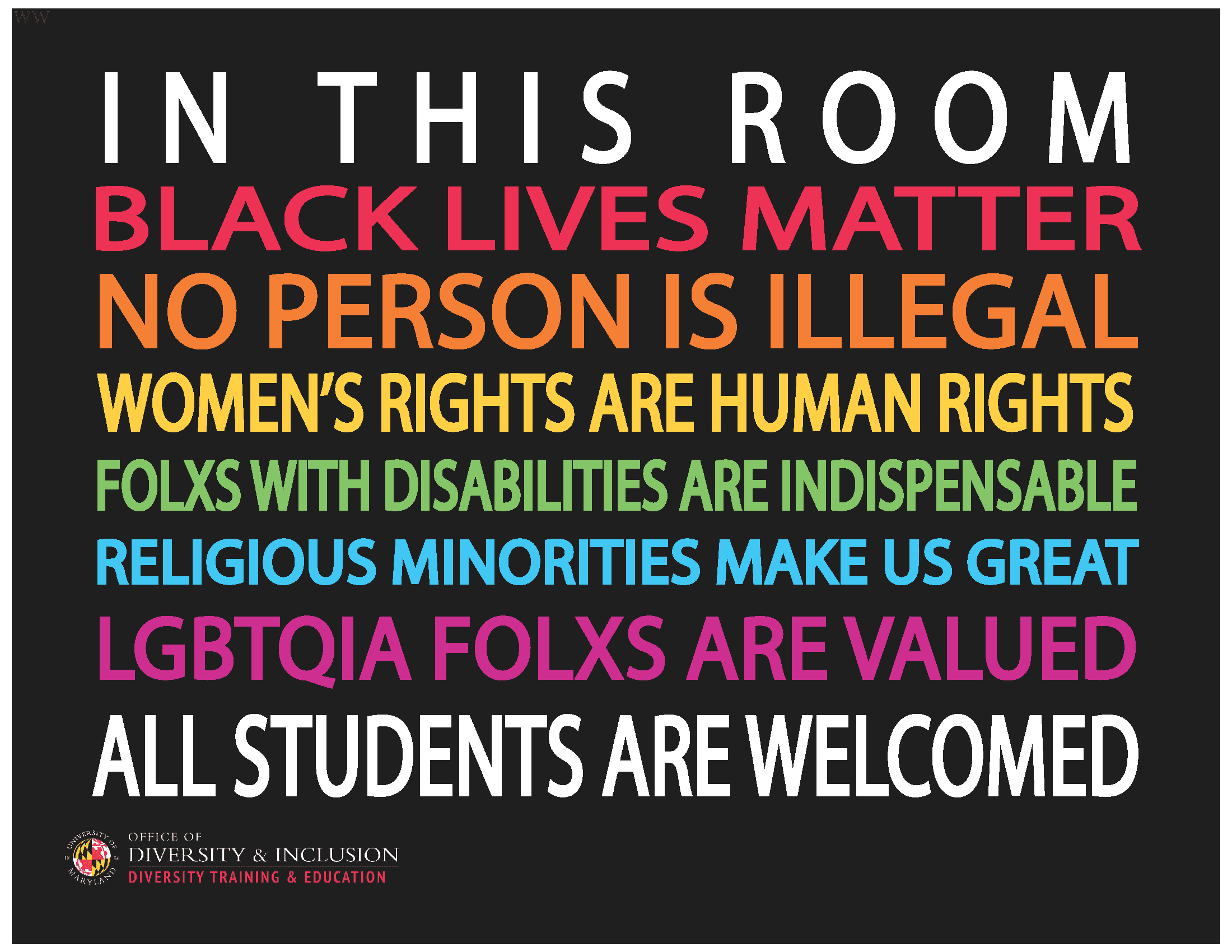
"In This Room" statement for printing
Topics: LGBTQ+ Identity Community Hate & bias Free speech Anti-oppression

Through a search for sandals, digital accessibility expert Kosi Asabere demonstrates how accessibility blockers like dialogue boxes, lack of alt text and clear headings and more can create a frustrating and unwelcoming experience for website visitors.
Topics: Accessibility
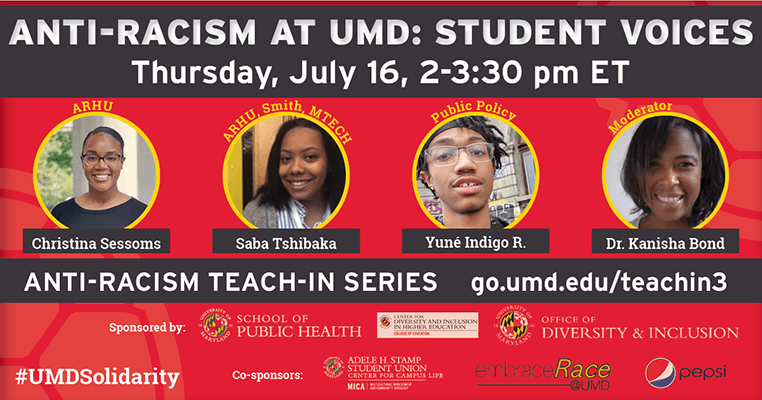
A UMD student panel on anti-racism at UMD.
Topics: Anti-oppression
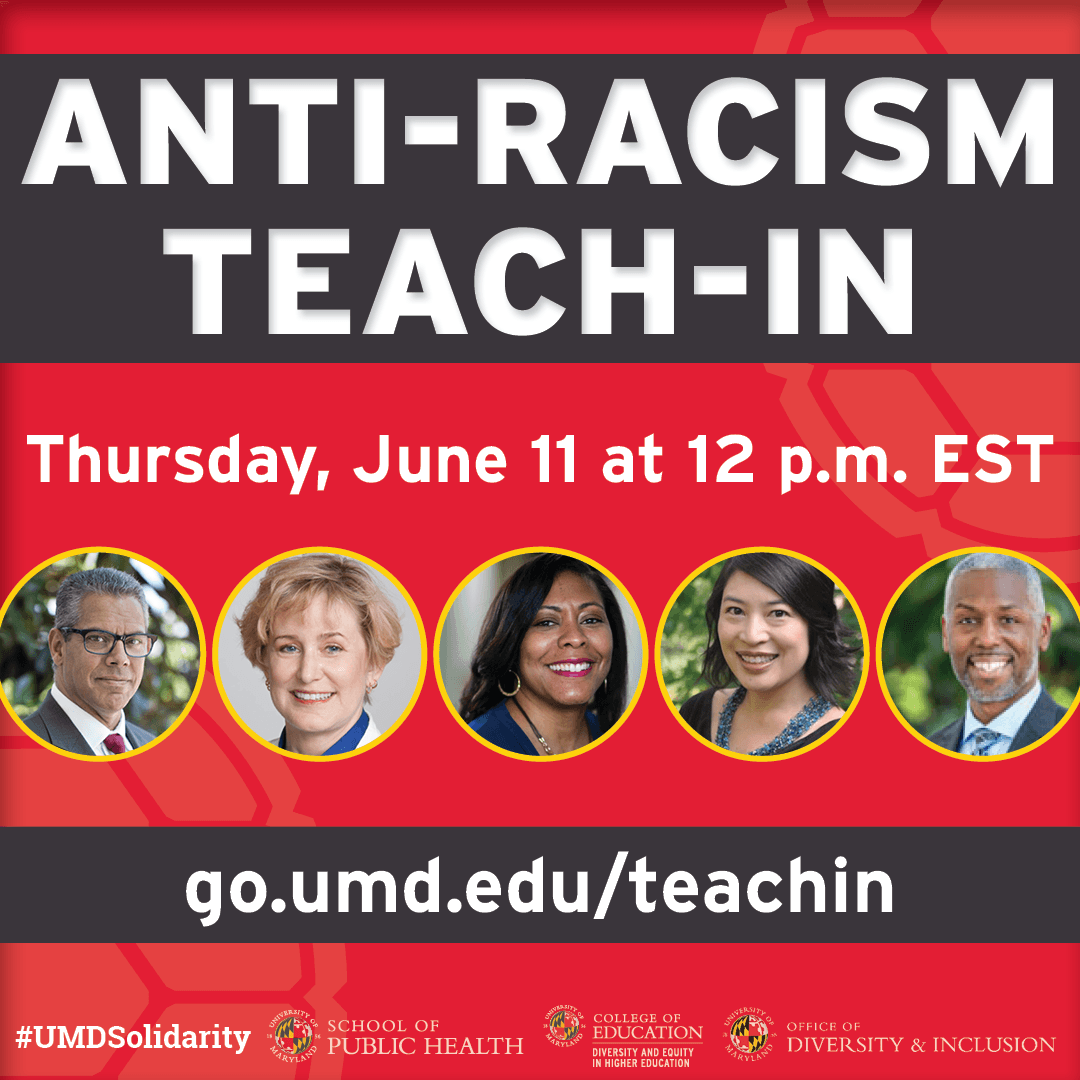
A conversation on how UMD might contemplate and adopt anti-racist practices
Topics: Anti-oppression

This series of anti-racism teach-ins gathered experts on anti-racism from UMD and beyond, including students, leaders, faculty and alums, as one action the UMD community could take as we learn to be anti-racist in the face of racism everywhere it...
Topics: Anti-oppression
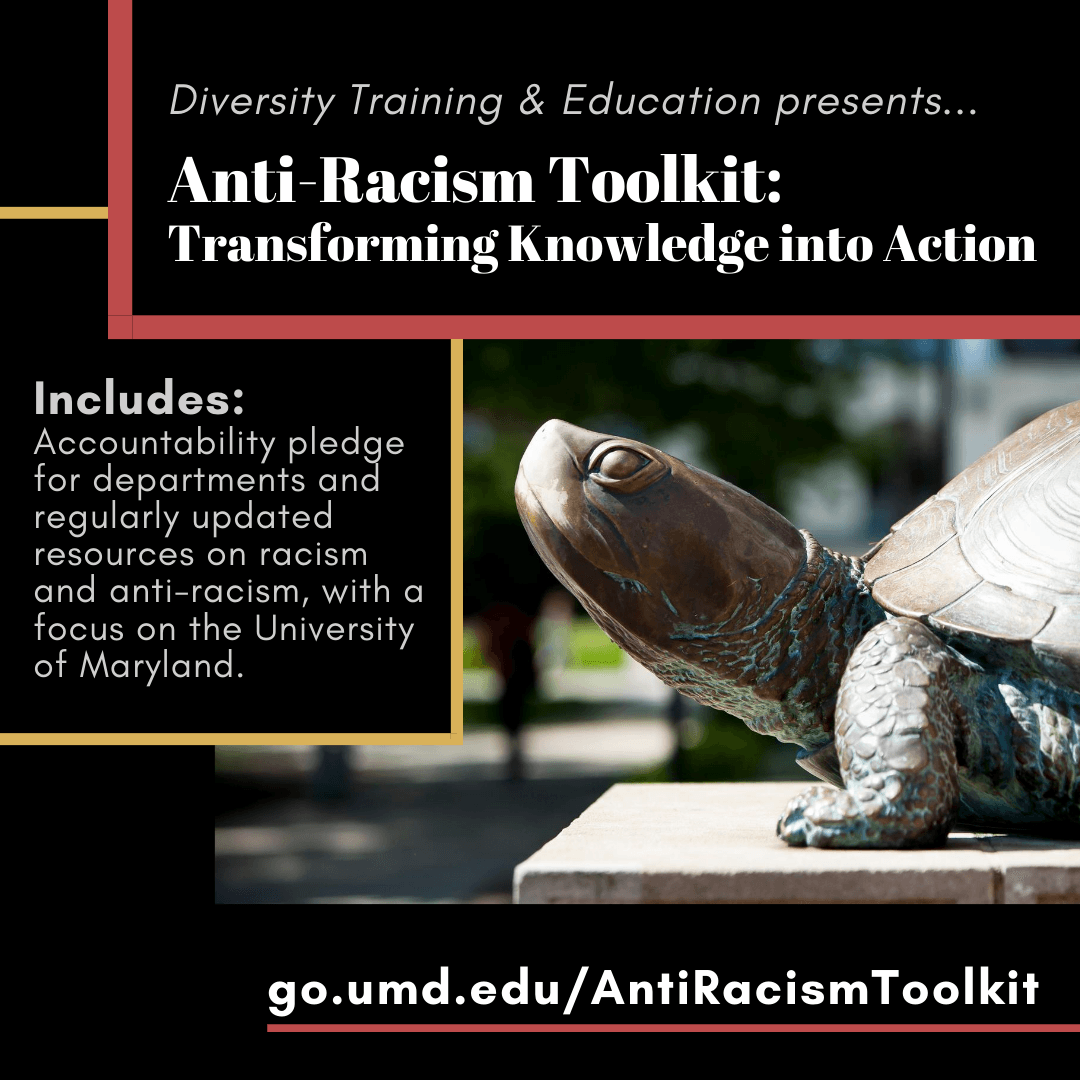
Topics: Anti-oppression
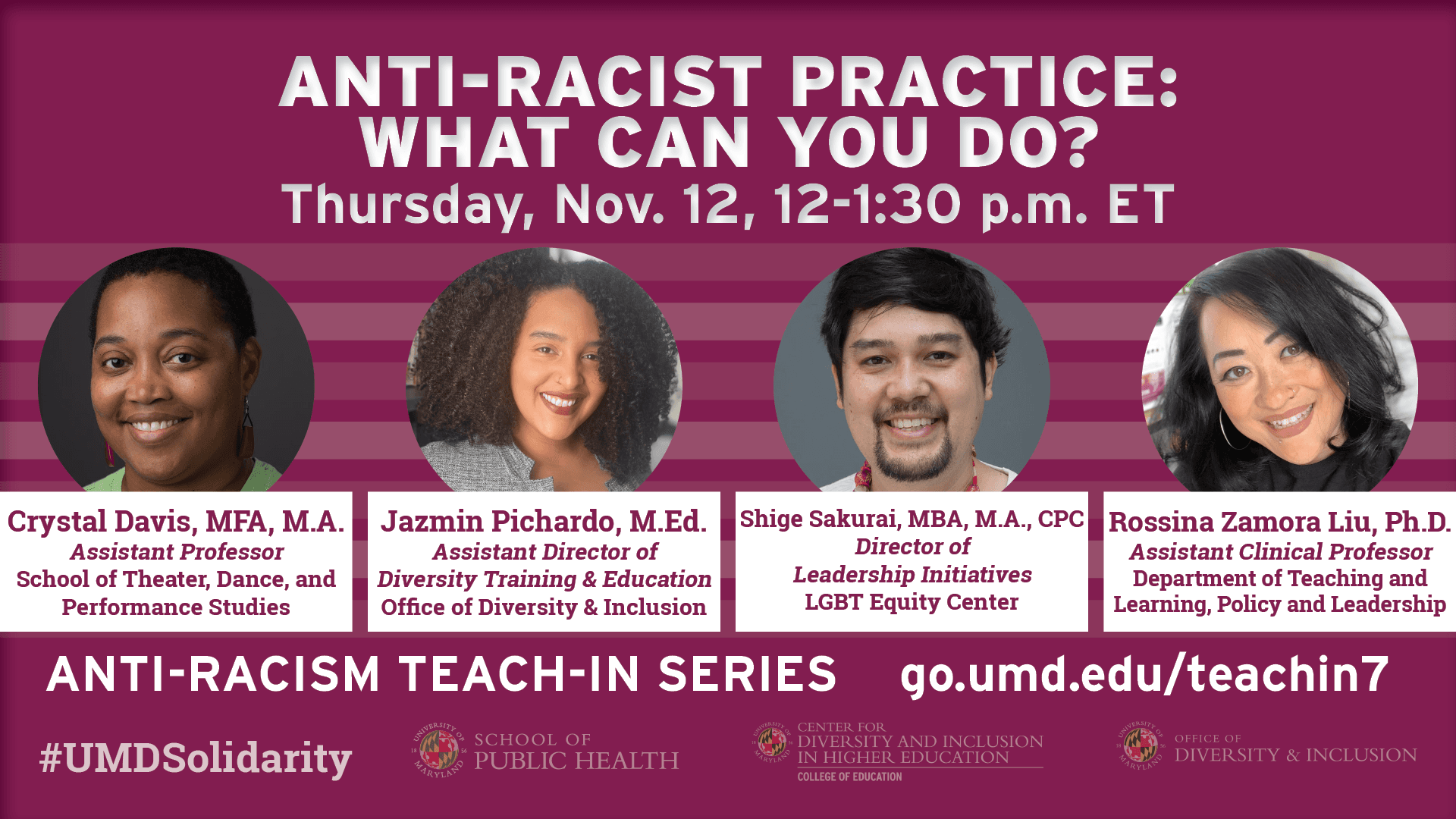
A staff and faculty panel on the day-to-day practice of anti-racism.
Topics: Anti-oppression
In response to the worldwide uprisings against racism in summer 2020, ODI’s Diversity Training & Education (DTE) unit released an Anti-Racism Toolkit. The toolkit provided entry points into the work of anti-racism for the University of Maryland...
Topics: Anti-oppression

Hate-bias reporting options and response strategies
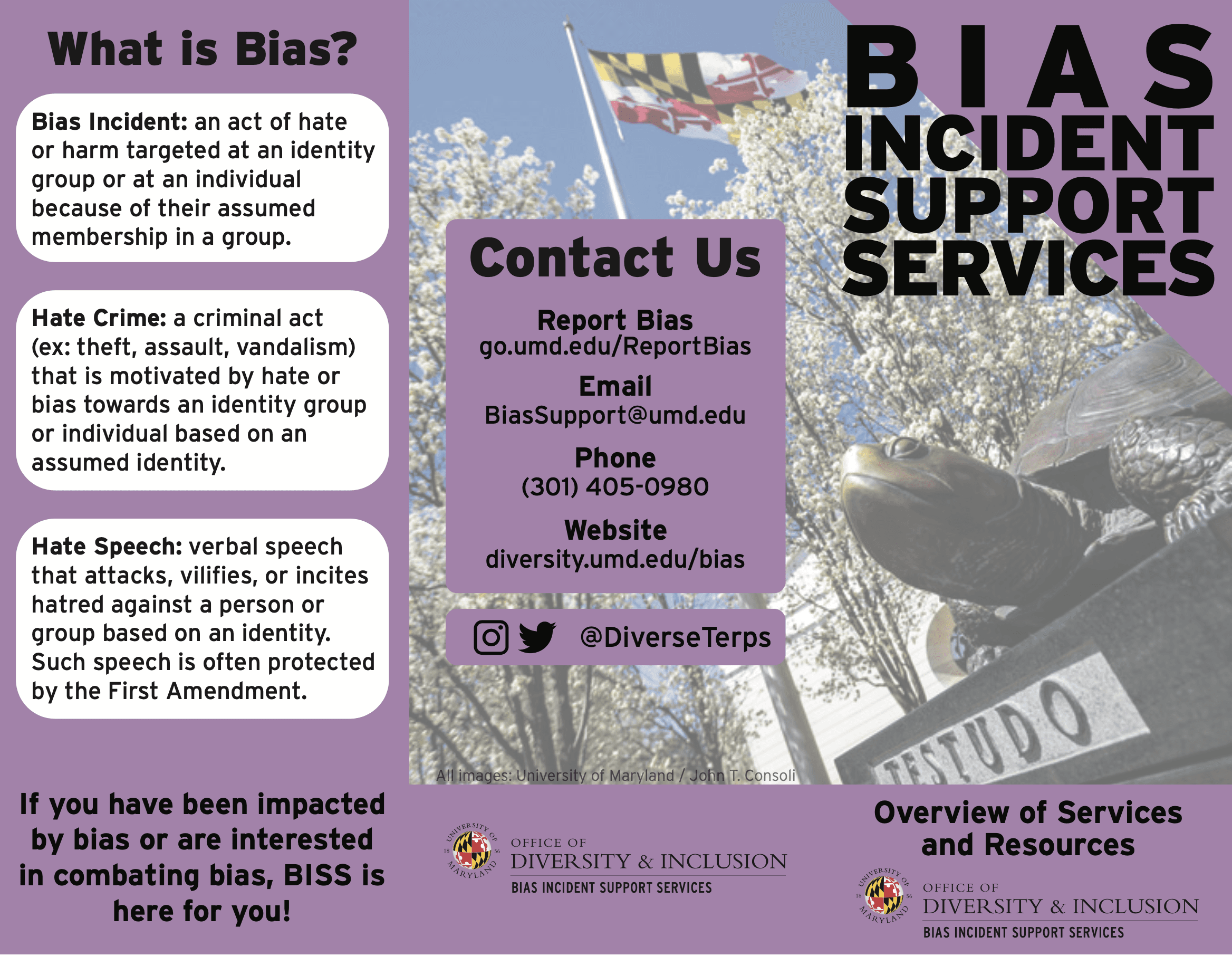
Overview of services and resources from Bias Incident Support Services
Topics: Hate & bias